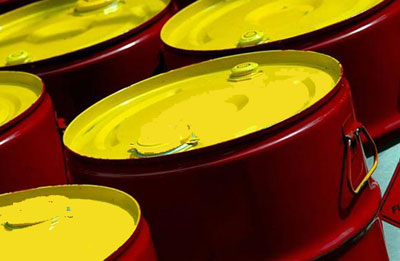
Opec output soars on higher Iraq exports
Riyadh, March 8, 2014
Crude oil production from the Organization of the Petroleum Exporting Countries (Opec) climbed by 240,000 barrels per day (bpd) to 30.11 million bpd in February from 29.87 million bpd in January following a surge in Iraqi exports, said a report.
This was despite new setbacks in Libya, a just-released Platts survey of Opec and oil industry officials and analysts showed.
"These are the sorts of output numbers that not long ago, when combined with the rising production from North America, looked like they might weigh on the market and cause a fall in prices," remarked John Kingston, Platts global director of news.
"In particular, the Iraq numbers are surprising, given that output there has been troubled in recent months. And yet, West Texas Intermediate crude is solidly above $100, Brent prices are up near $110, and world inventories have been drawing sharply. With all of this supply at the ready and prices greater than $100 per barrel, it might be time to review some of that conventional wisdom," he added.
The February total is the highest since August 2013, when the Platts survey estimated output at 30.28 million bpd.
With the Basrah terminal in full operation and weather conditions good throughout the month, Iraq's southern export average of 2.5 million bpd was the highest rate since 1979.
The 390,000 bpd increment from Iraq was boosted by smaller increases from Angola, Iran and Nigeria.
However, Libyan output declined again as fluctuating levels of unrest forced the key Sharara field to close again and total output to fall from 600,000 bpd early in February to just 230,000 bpd late in the month. Having climbed to an average 530,000 bpd in January from 250,000 bpd in December, Libyan output fell back in February to average 360,000 bpd.
Libya's oil sector has been disrupted intermittently by strikes and protests since late May 2013. Earlier last year output had recovered to around 1.4 million bpd from virtually zero in 2011 during the uprising against Moammar Qadhafi.
Smaller output dips came from Saudi Arabia, the United Arab Emirates and Venezuela.
Opec's February total leaves it overproducing its 30 million bpd crude output ceiling, which has been in place since January 2012.
The ceiling is largely notional, however, as it does not include individual country quotas but covers Iraqi production. Iraq has not participated in any Opec distribution of output quotas since August 1990.
The February total is also 500,000 bpd greater than Opec's own 29.6 million bpd expectation of demand for its crude this year and more than 900,000 bpd higher than the oil producer group's estimate of the call on its crude in the first half of 2014.
The International Energy Agency last month also pegged the average 2014 call on Opec at 29.6 million bpd but said it expected demand in the second half of the year to average 30 million bpd, around 1 million bpd higher than the projected first-half call.-TradeArabia News Service







